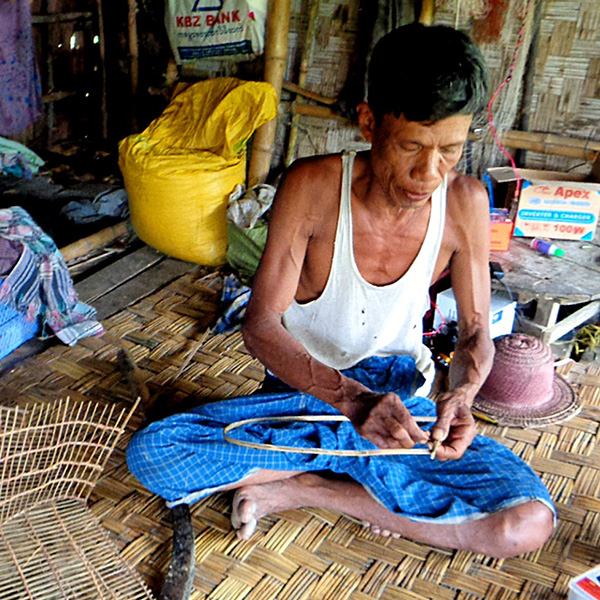Stories of Change

U Htein Win prepares for another fishing trip.
A $45 loan nearly doubled a family’s income. Here’s how.
U Htein Win is a widower; his wife passed away four years ago. Four of the couple’s eight children still live at home; the rest are married and living independently. After his wife’s passing, U Htein became the family’s sole breadwinner.
U Htein has his own boat and relies on fishing as a source of income and as a way to add protein to his family’s daily meals. He was making about 3,000 Kyat ($2) each day. He has long wanted to expand into shrimp fishing, but in order to do that he would need special traps. If he were to try to take out a loan to buy the traps, it would be at a 10-15% interest rate that he simply couldn’t afford.
His life changed, though, when CWS introduced the concept of a savings group to his village of Koe Ein Tan, which is about three hours west of Yangon. Any resident can join the village’s savings group by contributing at least 2,000 Kyat ($1.35) each month. Some savers contribute as much as 9,000 Kyat ($5.87) each month to help the group’s funds grow faster. Once the group has accumulated 70,000 Kyat ($45) in savings, they can approve a loan for up to that amount to a group member. The loans have a 5% interest rate and a three-month payback period.
U Htein felt that he could contribute the needed amount, so he joined the savings group. He was one of the first of the 17 members to borrow from the group savings. He applied for the maximum loan amount–after doing the math and feeling confident that he could pay the loan back–and bought 20 shrimp traps. His daily income has jumped from $2 to at least $3.33 each day. Some days he makes twice as much as he did before the shrimp traps!
When our team recently chatted with U Htein, he said, ““I like this activity! I am already saving about 4,000 Kyat [$2.60] monthly from my extra shrimp income. I hope our saving group lasts a long time so I can get another loan for more traps. Thank you, CWS, for showing us how to set up the groups. Our family no longer worries about food, nor about borrowing money at high interest rates.”
